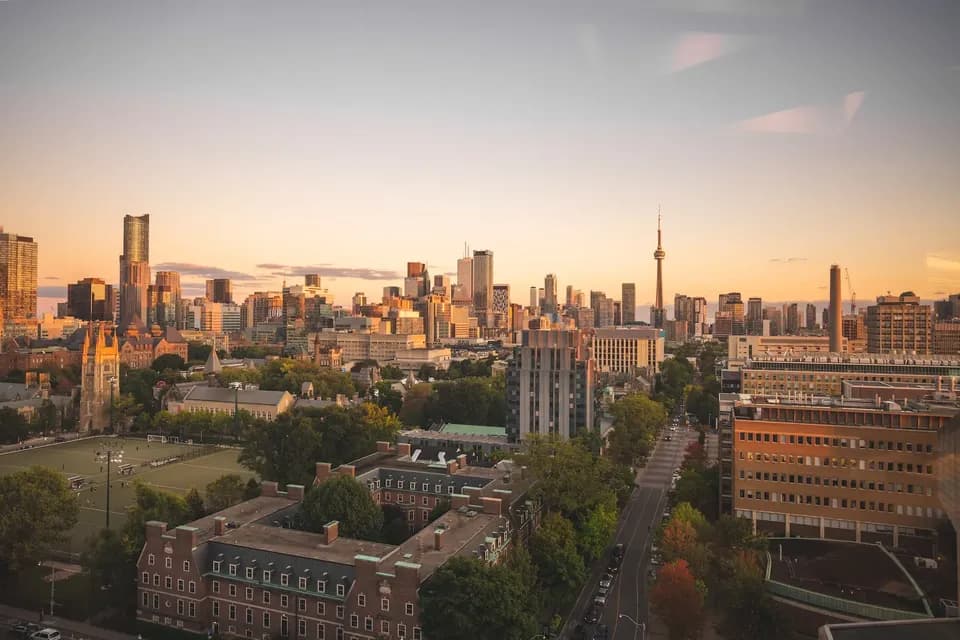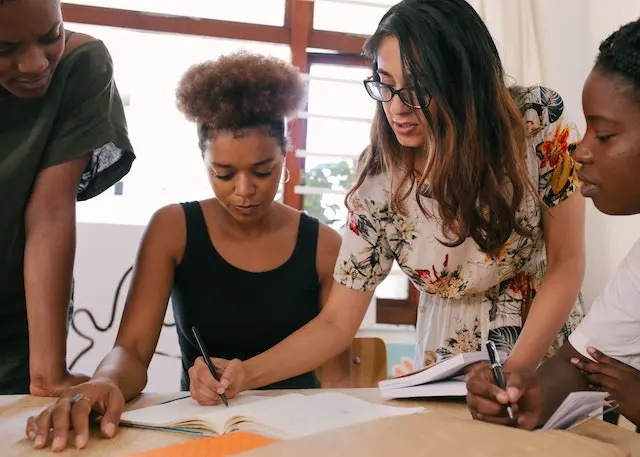Canada College Application and Student Visa Guide for International Students

Getting your dream education in a foreign country can be an exciting venture. It's a chance to learn about new cultures, meet different people, and of course, enjoy a quality education. If Canada happens to be your chosen study destination, you're in luck. It's a beautiful country known for its top-notch universities, diverse culture, and warm hospitality.
But before you can dive into the rich educational tapestry that Canada offers, there's one thing you'll need: a Canadian Student Visa. This may sound like a daunting task, but don't worry; we've got your back! This blog post will serve as a comprehensive guide to help you secure your Canadian Student Visa. We'll discuss everything from college application process, eligibility criteria, required documents, student visa application process, costs, and so much more. So, are you ready to take the first step towards your dream education in Canada? Let's get started!
Why Choose Canada?
Before we dive into the specifics of applications, let's pause and think why Canada should be your destination of choice. The answer lies in its robust education system, safe and friendly environment, opportunities for part-time work during studies, and pathways for permanent residency. It's like finding a place that offers the best of education, lifestyle, and future prospects - a triple treat!
Step 1. Finding the Right Institution
The first step on this journey is finding the right university or college. Canada is home to globally acclaimed universities like the University of Toronto, McGill University, and the University of British Columbia. It also hosts numerous excellent colleges, including Humber College, Centennial College, and more. Start by researching these institutions and identify which one aligns with your academic and career aspirations. Look into factors such as the courses on offer, campus life, location, tuition fees, and the opportunities available for international students. Just as a mariner uses a compass, let your interests and goals guide your choice.
To obtain a Canadian Student Visa, you must ensure that you are accepted by a Designated Learning Institution (DLI). These are schools allowed by the Canadian government to host international students. So, how do you find these DLIs? Simply visit the Canadian government's official website, and there you'll find a list of all DLIs in the country. Remember to double-check whether your chosen institution is on the list before you apply. Most Canadian universities will be a Designated Learning Institution (DLI).
Step 2. Deciphering the Admission Requirements
Every college has specific requirements that you, as an applicant, must meet. These requirements are like the keys that unlock the door to your chosen college. In most cases, you will need to provide your academic transcripts, prove your proficiency in English or French through tests like IELTS or TOEFL, and submit letters of recommendation. Some colleges may also ask for a Statement of Purpose (SOP), where you outline your academic background, why you wish to study your chosen course, and your future goals.
For instance, if you are applying for a Graphic Design program, you might also need to submit a portfolio of your work. If you're looking at a Business program, the college might require you to have a background in Mathematics. Think of these requirements as the secret ingredients that make up the recipe for your successful application.
Step 3. Mastering the College Application Process
The application process can be likened to embarking on a multi-stop journey. Here's a roadmap to help you:
Preparation: Gather all your documents - transcripts, test scores (IELTS, TOEFL etc), letters of recommendation, SOP, etc. It's like packing your bags before setting off on your journey.
Application: Next, fill out the application form. Each college has its form, which you can usually find on their website. Attach the necessary documents and pay the application fee, if required. The average application fees can range from around CAD $100 to CAD $200. It's like checking in at the airport for your flight.
Follow Up: Stay in touch with the admissions office to ensure they have all the information they need, and to check the status of your application. Email is the best way to communicate with admissions office. It's similar to tracking the progress of your journey.
Acceptance: If your application is successful, you'll receive an admission offer. Accept it, and you'll get an official letter of acceptance, which you will need for your visa application. It's important to keep this safe and readily available. It's like finally receiving your boarding pass!
Step 4: Checking your Eligibility for Canadian Student Visa
Next, you'll need to confirm your eligibility for a Canadian Student Visa. This includes criteria such as:
Proof of Acceptance: You need a valid acceptance letter from a Designated Learning Institution (DLI).
Proof of Identity: This includes a valid passport or travel document for you and any family member coming with you to Canada.
Proof of Financial Support: You'll need to prove that you can support yourself and any family members while in Canada. This includes tuition fees, living expenses, return transportation costs, and more.
No Criminal Record: You must not have a criminal record and may need to provide a police clearance certificate.
Health Checkup: You must be in good health, and a medical exam might be required.
Are you ticking off all these boxes? Great, let's move to the next step!
Step 5: Gathering the Required Documents
With eligibility confirmed, it's now time to gather all the necessary documents for your application. Along with the acceptance letter, passport, and financial proof discussed above, you may also need:
Passport-size photographs: Check the specific size and other requirements on the Canadian government website.
English Proficiency Test Scores: If English isn't your first language, you'll need to submit proof of proficiency, like IELTS or TOEFL scores.
Statement of Purpose: This is your chance to explain why you wish to study in Canada and assure the authorities that you're a genuine student.
Immigration Medical Examination (IME): You might need to undergo an IME as part of your visa application process. If required, ensure to get it done from a panel physician approved by Immigration, Refugees and Citizenship Canada (IRCC).
Remember, being meticulous with your documentation can save you from rejections or delays.
Step 6: Application Process for Canadian Student Visa
Now comes the exciting part, submitting your application! You can apply online or through a visa application center (VAC) in your country. Here's how:
Online: Visit the IRCC website and follow the instructions for online applications. You will need an electronic copy of all your documents.
Via a VAC: Download the application package from the IRCC website, complete the form, attach your documents, pay the fees, and submit it to your nearest VAC.
In both cases, you'll have to pay a visa processing fee (approximately CAD 150 as of September 2022) and biometric fee (CAD 85). Keep track of your application status online and respond promptly if the visa office contacts you for an interview or further documentation.
Step 7: Preparing for your Arrival
Once your visa gets approved (Congratulations! 🎉), it's time to prepare for your journey to Canada. Pack suitable clothing considering Canada's weather, arrange your stay, set up a bank account if possible, and familiarize yourself with the city you'll be living in. But wait, there's one more important thing: your Study Permit.
Upon arrival in Canada, you'll receive a Study Permit, a document that allows you to study in Canada. Your student visa is your ticket into Canada, but the Study Permit is what lets you stay and study. So, don't forget to collect it!
Working While Studying
The Canadian government allows international students to work part-time during academic sessions (up to 20 hours per week) and full-time during breaks. This can help offset your living costs and also provide valuable work experience. It's a win-win situation, much like enjoying a scenic bike ride that also improves your fitness!
Opportunities After Graduation
Your journey doesn't have to end with your graduation. The Post-Graduation Work Permit (PGWP) program allows you to stay back and work in Canada. This can be a fantastic opportunity to gain international work experience and could even be a pathway to Canadian permanent residency - a perfect encore to your Canadian educational journey!
Conclusion
Securing a Canadian Student Visa might seem like a complex process, but with the right information and guidance, it's entirely manageable. We hope this guide has given you a comprehensive understanding of the steps involved. Remember, preparation and accuracy in your application are key.
Imagine the moment when you receive that acceptance email from the Canadian authorities, confirming your student visa. Exciting, isn't it? This could be your reality if you diligently follow the steps we've laid out in this guide. So, gear up, get organized, and take the first step towards your dream of studying in Canada.
Safe travels, future scholars!


